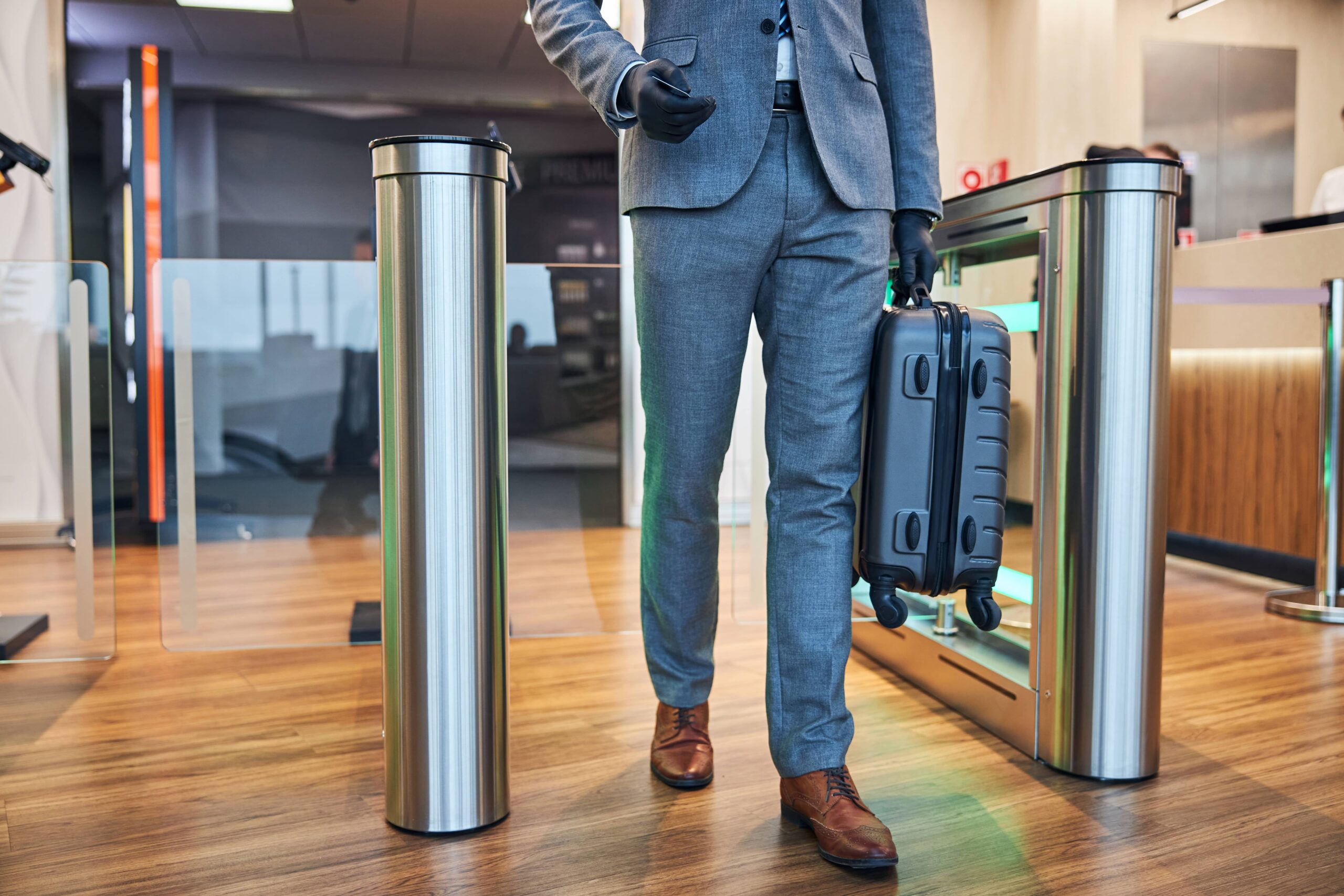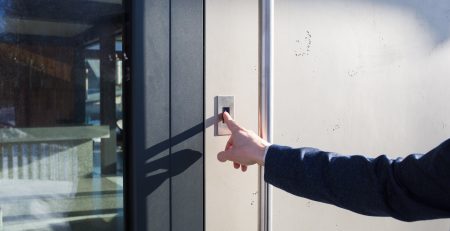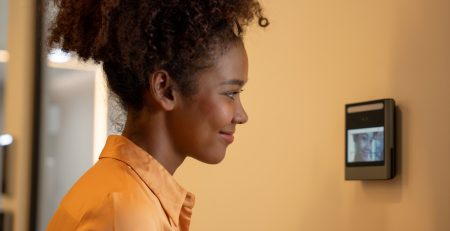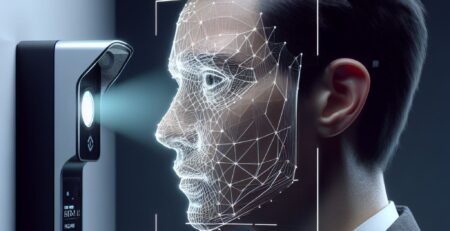Access Control in Public Buildings
When we talk about security in public buildings, access control stands out as a fundamental measure. Let's explore why this technology is so crucial to the security and integrity of government facilities.
What is Access Control?
Access control is a system that manages and restricts people from entering specific areas. Its main components include authentication devices, management software and network infrastructure.
Evolution of Access Control Systems
Access control systems have evolved significantly. From conventional keys and locks to biometric and facial recognition systems, technology has advanced to provide more security and efficiency.
Importance of Access Control in Government Facilities
Protection of Sensitive Information
In public buildings, there is often sensitive information that needs to be protected. Access control ensures that only authorized people have access to these restricted areas.
Prevention of Unauthorized Access
Access control mechanisms prevent unauthorized individuals from entering critical areas, preventing possible threats and ensuring the safety of occupants.
Monitoring and Recording Entries and Exits
Access control systems allow detailed monitoring and recording of all entries and exits, providing a complete history of activities that can be useful in audits and investigations.
Technologies Used in Access Control Systems
Biometry
Biometrics uses unique physical characteristics, such as fingerprints and facial recognition, to authenticate individuals' identities, offering a high level of security.
Access Cards and Passwords
Access cards and passwords are traditional but effective methods of access control, enabling flexible and secure management of entry points.
Mobile Access Control
With the growing popularity of mobile devices, mobile access control has become an important innovation, allowing smartphones to be used as access credentials.
Implementation of Access Control Systems
Needs Assessment
The first step in implementation is to assess site-specific needs. Identify critical areas that need monitoring and strict access control.
Choice of Equipment and Suppliers
Choose high-quality equipment and reliable suppliers. Consider aspects such as durability, ease of use and technical support.
Installation and Configuration
Installation must be carried out by qualified professionals, ensuring that all components are configured correctly for efficient operation.
Compliance with Law 14,133/2021
Bidding Procedures
Law 14,133/2021 establishes guidelines for bidding on access control systems. Follow legal procedures to ensure transparent and fair hiring.
Supplier Selection Criteria
Select suppliers based on criteria such as equipment quality, market experience and technical support offered, ensuring compliance with legislation.
Challenges and Ethical Considerations
Privacy and Security
Ensuring user privacy is essential. Access control systems must be designed to protect personal data and respect the rights of individuals.
Transparency and Responsibility
Transparency in the use of technology is fundamental. Authorities must be clear about how systems will be used and ensure there is accountability in managing data.
Future of Access Control Systems
Artificial Intelligence and Automation
Artificial intelligence is transforming access control systems, enabling automation and advanced data analysis to improve security.
Integration with Other Technologies
Integration with other security systems, such as surveillance cameras and alarms, creates a more robust and effective security network.
Conclusion
Access control is vital to the security and integrity of public buildings. Investing in advanced technologies and ensuring compliance with Law 14,133/2021 is essential to protect sensitive information and prevent unauthorized access. If you are looking for integrated access control solutions, C2H Solutions is ready to help. Contact us through our contact page to receive a quote and improve the safety of your community.
FAQs
- What is access control?
- Access control is a system that manages and restricts people from entering specific areas, using authentication devices and management software.
- What are the benefits of access control in public buildings?
- Protects sensitive information, prevents unauthorized access and allows detailed monitoring and recording of all inputs and outputs.
- How to choose equipment and suppliers for access control systems?
- Consider aspects such as durability, ease of use, quality of equipment and technical support offered by suppliers.
- What technologies are used in access control systems?
- Biometrics, access cards, passwords and mobile access control are some of the technologies used.
- How to ensure compliance with Law 14,133/2021 when implementing access control?
Follow legal bidding procedures and select qualified suppliers, ensuring transparent and fair contracting.












Comments (12)
💡 O controle de acesso em prédios públicos é fundamental para garantir a segurança e a eficiência nos serviços prestados. Investir em soluções inovadoras não só protege o patrimônio, mas também proporciona uma maior tranquilidade para todos!
👉 Quer aprofundar seus conhecimentos sobre #Controle de Acesso? Explore mais conteúdos exclusivos em nosso blog na seção #Controle de Acesso.
🤝 Envie um email para nosso departamento comercial! comercial@c2hsolutions.com.br
💡 A segurança em prédios públicos é essencial para garantir a proteção de todos os cidadãos. Implementar um controle de acesso eficiente pode transformar a segurança do seu ambiente!
👉 Quer aprofundar seus conhecimentos sobre #Controle de Acesso? Explore mais conteúdos exclusivos em nosso blog na seção #Controle de Acesso.
🤝 Envie um email para nosso departamento comercial! comercial@c2hsolutions.com.br
💡 A implementação eficaz de um controle de acesso é essencial para garantir a segurança e a organização em prédios públicos, protegendo tanto os colaboradores quanto os visitantes. 🌟👉 Quer aprofundar seus conhecimentos sobre #Controle de Acesso? Explore mais conteúdos exclusivos em nosso blog na seção #Controle de Acesso. 🤝 Envie um email para nosso departamento comercial! comercial@c2hsolutions.com.br
💡 A segurança em prédios públicos é essencial para garantir a proteção de todos os cidadãos. Investir em um sistema de controle de acesso eficiente não só aumenta a segurança, mas também traz tranquilidade para os usuários.
👉 Quer aprofundar seus conhecimentos sobre #Controle de Acesso? Explore mais conteúdos exclusivos em nosso blog na seção #Controle de Acesso.
🤝 Envie um email para nosso departamento comercial! comercial@c2hsolutions.com.br
💡 A implementação de um controle de acesso eficaz em prédios públicos não só garante a segurança, mas também promove a confiança da comunidade. Com soluções inovadoras, é possível personalizar o sistema para atender às necessidades específicas de cada local.
👉 Quer aprofundar seus conhecimentos sobre #Controle de Acesso? Explore mais conteúdos exclusivos em nosso blog na seção #Controle de Acesso.
🤝 Envie um email para nosso departamento comercial! comercial@c2hsolutions.com.br
💡 A segurança em prédios públicos é fundamental para garantir a proteção de todos. Investir em um controle de acesso eficiente não apenas previne incidentes, mas também proporciona tranquilidade para os usuários.
👉 Quer aprofundar seus conhecimentos sobre #Controle de Acesso? Explore mais conteúdos exclusivos em nosso blog na seção #Controle de Acesso.
🤝 Envie um email para nosso departamento comercial! comercial@c2hsolutions.com.br
🔒 O controle de acesso é essencial para garantir a segurança em prédios públicos, protegendo tanto as instalações quanto as pessoas que nelas trabalham. Invista em tecnologia de ponta para otimizar a gestão da segurança e aumentar a confiança da comunidade!
👉 Quer aprofundar seus conhecimentos sobre #Controle de Acesso? Explore mais conteúdos exclusivos em nosso blog na seção #Controle de Acesso.
🤝 Envie um email para nosso departamento comercial! comercial@c2hsolutions.com.br
💡 O controle de acesso é fundamental para garantir a segurança e a eficiência em prédios públicos. Invista em tecnologia que protege e organiza! 🌟
👉 Quer aprofundar seus conhecimentos sobre #Controle de Acesso? Explore mais conteúdos exclusivos em nosso blog na seção #Controle de Acesso.
🤝 Envie um email para nosso departamento comercial! comercial@c2hsolutions.com.br
💡 A segurança em prédios públicos é essencial para garantir a proteção de todos os cidadãos. Um sistema de controle de acesso eficiente não só protege, mas também promove a confiança na administração pública. 👉 Quer aprofundar seus conhecimentos sobre #Controle de Acesso? Explore mais conteúdos exclusivos em nosso blog na seção #Controle de Acesso. 🤝 Envie um email para nosso departamento comercial! comercial@c2hsolutions.com.br
💡 A implementação de um sistema eficaz de controle de acesso é crucial para garantir a segurança em prédios públicos, evitando riscos e promovendo a confiança da comunidade. 🚪👉 Quer aprofundar seus conhecimentos sobre #Controle de Acesso? Explore mais conteúdos exclusivos em nosso blog na seção #Controle de Acesso. 🤝 Envie um email para nosso departamento comercial! comercial@c2hsolutions.com.br
#Controle de AcessoControle de Acesso em Prédios Públicos#Controle de AcessoSegurança com Inovação e Confiabilidade – C2H Solutions
#Controle de AcessoControle de Acesso em Prédios Públicos#Controle de AcessoSegurança com Inovação e Confiabilidade – C2H Solutions